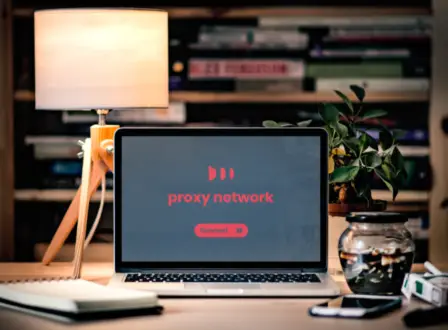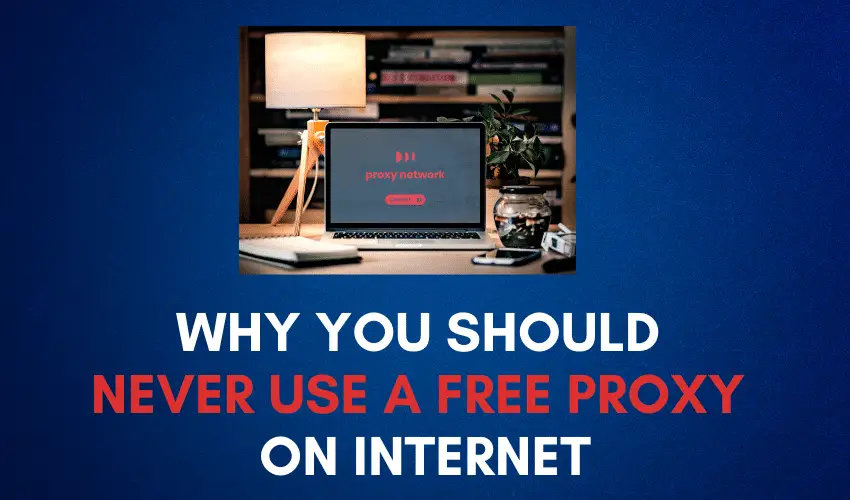A proxy server is one of the tools that still keeps the fight for internet privacy alive. The exponential growth of efficiency and convenience that we enjoy thanks to the web has quietly stripped us of precious internet anonymity. Without proper governmental interference, companies feed on our personal information and constantly look for other ways to fuel progress and profit from sensitive data.
Big concerns about tracking and the future of the web have accelerated the growth of the internet privacy industry. The demand for virtual private networks (VPN), Adblockers, private browsers, proxy servers, and other privacy tools is at an all-time high. The convenience disguise no longer works because users see a stagnation in progress but a massive increase in digital footprint tracking and surveillance. Some people feel scared creating posts on social media and even making purchases because every move gets sent to third-party advertisers.

While a VPN is the most popular safety tool for casual web surfers, its original intent is to protect and encrypt data on public networks. However, even if you change your IP with this tool, the address will apply to the entirety of your device. Due to these limitations, tech-savvy internet users prefer to use a proxy server instead..
With multiple proxy servers, you can create tens if not hundreds of different browser or software instances that require an internet connection and give each of them a unique IP address.
The best proxy servers come from legitimate proxy providers. The biggest mistake most beginners make is choosing a free proxy instead. Even if you want an android proxy, do not endanger your data. Learn more about Smartproxy - a legitimate provider with many tutorials on how to set up proxy servers on your phone. For now, let's focus on the dangers of free proxy servers.
Understanding how proxies work
A proxy acts as a middleman between the user's device and the remote server to which data packets get transferred. Because the traveling information is received from a proxy server and not the user's phone or computer, your network identity is never exposed to the targeted server.
This change of identity and location opens up a whole new world of opportunities. Not only your IP is never exposed to the remote server, but you can use specific proxies from required regions to bypass geo-blocked websites. With a reliable proxy provider, you can simulate an anonymous connection from anywhere around the world with just a few clicks of your phone. If your IP is banned on some servers, you'll be able to visit them once again!
However, even though, in theory, a public proxy should give you all these benefits for free, the reality is quite different. Because you may never know who is behind the intermediary server you can't entrust your private data into their hands.
How a free proxy compromises your privacy
Free proxies are bait for uninformed users seeking privacy on the internet. When an unsuspecting web surfer connects to a public proxy and starts using social media platforms, bank accounts, and accesses other websites with sensitive user information, a third party behind the server can see and extract data packets to rob the user and leak his private data. What is supposed to be a helpful privacy tool turns out to be our greatest enemy.
A good proxy has to come from a law-abiding proxy provider that has no right of distributing your sensitive data. Also, legitimate servers will always dominate free proxies in performance while presenting many convenient features for interested customers. If you always look for the cheapest solution, it will quickly backfire.
An abysmal free proxy performance
If you do not plan to transfer sensitive information through the server, you might still consider a free proxy a neat tool for anonymity. However, 99% of the time, that is not the case.
Because most free proxy servers are overloaded, your connection will be very slow. In most cases, the speed is too unbearable to get any benefits from anonymous browsing.
Even if you manage to find a public proxy with a decent internet connection. Also, you will be surprised by how many websites will have your IP blacklisted. Most free proxy users hide their identity for malicious purposes and get banned even on websites like Google.
Honeypotting is another big issue for free proxies, especially if you plan to use them for scraping. Some companies set up fake vulnerabilities in the system that lead to a decoy server to recognize attackers and capture their information. Even if you plan a harmless scraping operation or a simple anonymous connection, a free proxy IP might already be blacklisted, which will lead you into a sticky honeypot.
If you'd use residential proxies with IPs from real internet service providers, you would rarely encounter this issue. However, even if it happens, you can always choose a different and secure IP. Never use a free proxy on the internet, and you won't be disappointed, or worse - robbed!
We are giving you exclusive deals to try Linux Servers for free with 100$ credit, check these links to claim your 100$,
DigitalOcean - 100$ free credit & Linode - 100$ free credit
Check some Exclusive Deals, HERE.
Also, check out DevOps Book You should read section.
